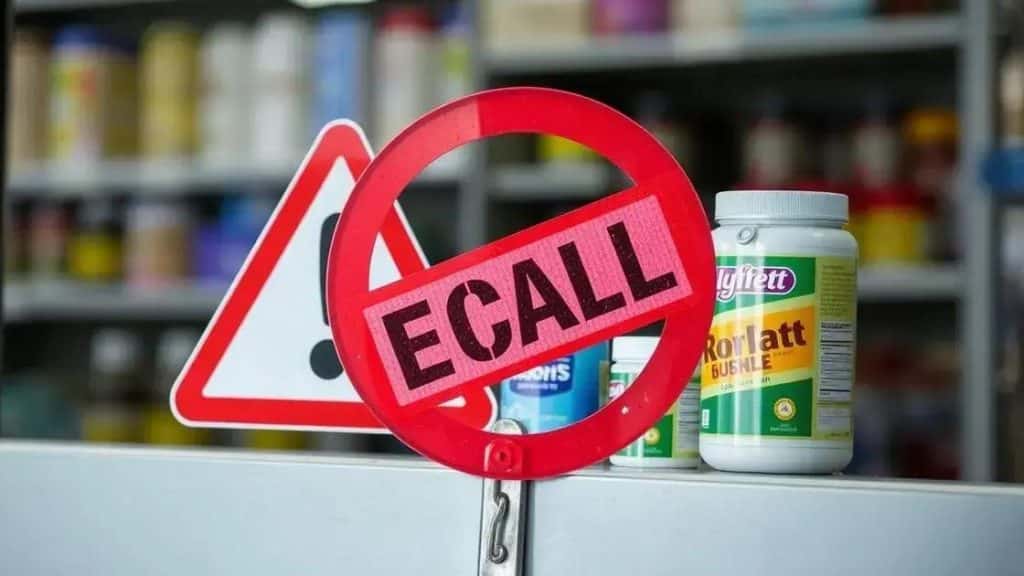Product recall alerts: what you need to know now

Product recall alerts are notifications issued when a product is found to be unsafe, providing consumers with essential information to protect themselves and encouraging them to stop using affected products immediately.
Product recall alerts are crucial for ensuring consumer safety. They keep you informed about dangerous products and potential risks. Are you aware of how these alerts can impact your everyday life?
Understanding product recall alerts
Understanding product recall alerts is essential for keeping yourself and your loved ones safe. These alerts inform consumers about potentially dangerous products that may pose health risks.
When a company discovers a safety issue, they often issue a recall. This process allows consumers to return or stop using the affected product. But how do you stay informed about these alerts?
What Triggers a Recall?
Several factors can lead to product recalls. These may include:
- Health risks: Issues that could cause injury or illness.
- Quality concerns: Defects that affect the product’s performance.
- Labeling errors: Incorrect information on packaging that could mislead consumers.
- Compliance failures: Not meeting safety regulations.
Receiving updates on product recalls can help you avoid risks. Many companies and organizations have systems in place to alert you when a recall occurs.
Where to Find Recall Information?
Staying updated is easier than you may think. Here are some reliable sources:
- Government websites: The U.S. Consumer Product Safety Commission (CPSC) regularly posts recall information.
- News outlets: Major news agencies report significant recalls that may affect public safety.
- Manufacturer notifications: Companies often send emails or alerts to inform consumers of recalls.
- Mobile apps: Many apps provide recall alerts tailored to your shopping habits.
By paying attention to product recall alerts, you can take necessary actions to protect yourself. Whether it means returning a product or avoiding a potentially harmful situation, staying informed helps maintain your safety.
In addition, understanding the recall process is crucial. If you find a product has been recalled, it’s important to follow the manufacturer’s instructions. This may include ceasing use, returning the product, or checking for further information regarding refunds or replacements.
How to find out about recent recalls

Finding out about recent product recalls is crucial to ensure your safety. Luckily, there are several effective ways to stay updated on the latest alerts. Knowing where to look makes all the difference.
Many organizations provide easy access to recall information. To start, you can check government websites that specialize in consumer safety.
Reliable Sources for Recall Information
Here are some trusted sources to keep you informed:
- Consumer Product Safety Commission (CPSC): This U.S. government agency offers extensive information on recalls, including detailed descriptions of the products involved.
- Food and Drug Administration (FDA): For food-related and pharmaceutical recalls, the FDA is an essential resource, sharing information on potentially harmful products.
- Manufacturer websites: Many companies have dedicated sections for recalls on their websites, often providing the most accurate and timely information.
- News outlets: Major news agencies frequently report significant recalls, ensuring that you hear about them quickly.
Staying informed is also about taking action. You can sign up for alerts or newsletters from these sources. This way, you receive notifications directly in your inbox when a recall is announced.
Use of Mobile Apps
Mobile technology has made it even easier to stay updated. There are various apps designed specifically for alerting users about recalls. These apps can notify you based on your shopping preferences and the products you use regularly.
By using these resources, you can ensure you never miss a crucial alert. Regularly checking these platforms will help you avoid unsafe products, protecting both yourself and your family.
Steps to take when a product is recalled
When a product is recalled, knowing the appropriate steps to take is vital for your safety. The process may seem overwhelming, but following a few simple guidelines can make it easier.
First, stay calm and check the notification details carefully. Understanding the reason for the recall can help you assess the level of risk involved.
Immediate Actions to Consider
When you learn about a recall, it’s important to act promptly. Here are crucial steps to take:
- Stop using the product: If the recall warns of health risks, discontinue use immediately to prevent potential harm.
- Check the recall details: Look for specific product identifiers like the model number or batch code to confirm if your item is affected.
- Follow manufacturer instructions: Recalls often include detailed instructions on how to return or dispose of the product safely.
- Contact customer service: If you have questions, reach out to the manufacturer for clarification on the recall process.
Understanding the recall process further ensures you remain safe. If the product is something you commonly use, keep a record of the recall notifications you receive.
Record Keeping and Monitoring
It can be wise to keep a list of products that have been recalled. Regular monitoring of recall alerts can also help you stay ahead of safety issues.
Check your pantry, fridge, or any storage space where you keep items that may have been affected by recalls. This proactive approach helps keep your household safe from dangerous products.
The role of consumers in product recalls

The role of consumers in product recalls is vital. Many people may not realize how important their actions are in ensuring safety for everyone. When recalls happen, consumers can make a big difference.
Consumers should stay informed and act quickly when recalls are announced. By being proactive, you not only protect yourself but also help others in the process. Here are some ways consumers can contribute.
How Consumers Can Help
It’s essential for consumers to be aware of recalls. Here are key actions that can be taken:
- Spread the word: Share recall information with friends and family to ensure they take necessary precautions.
- Report issues: If you notice a problem with a product, report it to the manufacturer or the appropriate safety agency.
- Participate in recalls: If a product you own is recalled, follow the manufacturer’s instructions on how to return or dispose of it properly.
- Stay updated: Regularly check recall information from reliable sources to remain informed about potential risks.
Reporting issues is crucial in helping prevent accidents. When consumers voice their concerns, manufacturers can take further action, either by improving their products or issuing recalls.
The Importance of Consumer Vigilance
Your vigilance can influence how companies handle safety. When consumers demand accountability, it encourages manufacturers to prioritize safety in the future.
By participating actively in the recall process, consumers contribute to a safer marketplace. This involvement ultimately supports a cycle of accountability and safety in consumer products.
In summary, being informed and proactive about product recalls is essential for consumer safety. Consumers play a crucial role in the recall process by staying updated, reporting issues, and sharing information. It is their vigilance that helps hold manufacturers accountable and contributes to safer products. By following the steps outlined in this article, you’ll not only protect yourself but also assist others in the community. Together, we can create a safer marketplace for everyone.
FAQ – Frequently Asked Questions about Product Recall Alerts
What should I do if a product I own is recalled?
If a product you own is recalled, stop using it immediately, check the recall details, and follow the manufacturer’s instructions for returning or disposing of the product.
How can I stay informed about product recalls?
You can stay informed by checking reliable sources such as government websites, manufacturer notifications, and reputable news outlets regularly for recall updates.
What are the common reasons for product recalls?
Common reasons for product recalls include health risks, quality defects, labeling errors, and non-compliance with safety regulations.
How can consumers help during product recalls?
Consumers can help by spreading recall information, reporting product issues, following recall procedures, and staying vigilant about safety.





